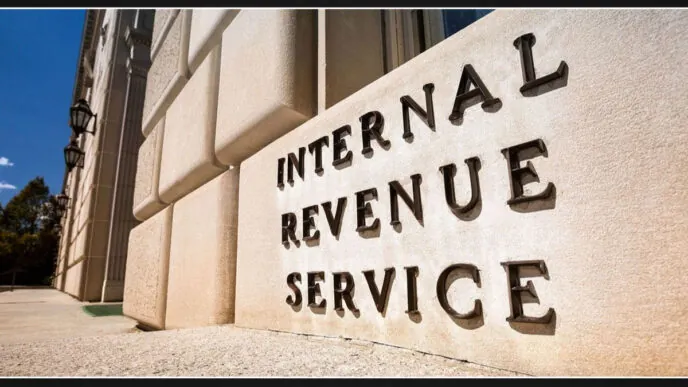The Social Security Administration has a particularly special gift in store for retirees this holiday season. It’s a time filled with gifts, cheer, and plenty of surprises, and now retirees have even more reason to celebrate.
Retirees are in for some good news this year as they will receive an increase in their benefits through the annual Social Security cost-of-living adjustment (COLA). This adjustment brings a substantial boost to their bank accounts, with some individuals set to receive a check as high as $4,873 just in time for Christmas.
In December, numerous individuals receiving Social Security benefits will experience an increase in their monthly payments. This adjustment, known as the COLA, aims to ensure that their income keeps pace with inflation and the ever-rising cost of living. Let’s delve into the details of this vital financial boost.
The $4,873 Social Security Check: Who Gets It?
The maximum amount a retiree can receive is a $4,873 check. However, it’s important to note that not everyone will receive this amount. The size of your Social Security check is determined by various factors, such as your lifetime earnings and the age at which you begin claiming your benefits.
-
- Average Social Security Payment: The average Social Security payment for a retired worker in 2023 is about $1,800 per month, according to the Social Security Administration. However, this amount varies based on how much you earned during your career and the age at which you begin receiving benefits.
- Maximum Social Security Benefit: The maximum monthly Social Security benefit a retiree can receive in 2023 is $4,555 if they begin taking benefits at their full retirement age (FRA). For those who delay claiming until age 70, that number can increase to $4,873 per month. This is the highest amount available, but it requires years of high earnings and waiting to claim benefits until the age of 70.
What’s Behind the $4,873 Check?
The annual inflation rate, which is measured by the Consumer Price Index for Urban Wage Earners and Clerical Workers (CPI-W), determines the COLA increase.
The Social Security Administration recently announced a significant COLA adjustment of 8.7% for 2024, in response to the rising inflation. This adjustment aims to assist beneficiaries in coping with the increasing costs of essential goods and services, including food, housing, and healthcare, which have experienced a significant surge over the past year.
Retirees who depend on a fixed income are relieved by this adjustment. The increase in COLA translates to additional funds in their bank accounts, providing some much-needed relief from the financial burden imposed by inflation.
When Will the Checks Arrive?
The Social Security Administration usually starts processing COLA increases in December. If you are already receiving Social Security benefits, you might see the increased amount reflected in your bank account as early as December 2024. The arrival date of your Social Security check may vary depending on your birth date, with some receiving it earlier and others later in the month.
The Social Security payment schedule can be broken down into the following general categories:
-
- If your birthday falls between the 1st and 10th of the month, your payment will be made on the second Wednesday of the month.
- If your birthday falls between the 11th and 20th of the month, your payment will be made on the third Wednesday of the month.
- If your birthday falls between the 21st and 31st of the month, your payment will be made on the fourth Wednesday of the month.
Be sure to keep an eye on your bank account when the scheduled payment date arrives to ensure that you receive your enhanced benefit.
What Does This Mean for Retirees?
For numerous retirees, Social Security benefits play a significant role in their income, and the increase in COLA helps to safeguard their purchasing power from eroding over time.
Receiving an additional $4,873 each month can greatly contribute to covering daily expenses, healthcare costs, or other financial needs. It’s important to note that not all retirees will receive the maximum amount, but even those who receive a smaller increase will still experience the benefits of this adjustment.
Furthermore, this surge in monthly payments can contribute to a greater sense of financial security and reduced stress for retirees during the festive season. With the additional $4,873 check, they can have a safety net that enables them to fully embrace quality time with loved ones without the burden of escalating expenses weighing on their minds.
How the Increase Will Affect Taxes
It is crucial to understand that the taxability of Social Security benefits depends on your total income. If your combined income, which includes Social Security benefits along with other sources like pensions, retirement savings withdrawals, or wages, exceeds specific thresholds, you may be required to pay federal income taxes on a portion of your Social Security payments.
If you have a higher income, the increase in the Cost of Living Adjustment (COLA) will raise your monthly Social Security benefit. However, it’s important to note that this may also result in an increase in the taxable portion of your Social Security income. To fully comprehend the implications of this increase on your overall tax situation, it is advisable to seek guidance from a tax professional.
How Can Retirees Maximize Their Benefits?
Here are a few tips to consider if you want to maximize your Social Security benefits over time, in addition to the immediate relief provided by the COLA increase:
1. Delay claiming your benefits: By waiting to claim your benefits until after your full retirement age, you can increase your monthly benefit amount. For each year you delay claiming, your benefit can increase by up to 8%.
2. Work for at least 35 years: Social Security benefits are calculated based on your highest 35 years of earnings. If you have fewer than 35 years of earnings, zeros are factored in, which can lower your overall benefit amount. Working for a full 35 years or more can help maximize your benefits.
3. Coordinate spousal benefits: If you are married, you may be eligible for spousal benefits. By coordinating your benefits with your spouse, you can potentially increase your total household benefits. It’s important to understand the rules and options available to couples to make the most informed decision.
4. Consider tax implications: Social Security benefits may be subject to federal income tax depending on your total income. Understanding the tax implications can help you plan accordingly and potentially minimize any tax burden.
5. Review your earnings record: Mistakes in your earnings record can result in lower Social Security benefits. Periodically reviewing your earnings history and correcting any errors can ensure that you receive the correct benefit amount.
By implementing these strategies and staying informed about Social Security rules and options, retirees can make the most of their benefits and secure their financial future.
No More Social Security Taxes in 2025? What Trump’s Promise Means for You
The promise made by President Trump to eliminate Social Security taxes by 2025 has raised many questions about the future of this important program. While some view this as a positive step towards reducing the burden on American workers, others are concerned about the potential consequences.
If this promise were to be fulfilled, it would mean that workers would no longer have to pay the 6.2% Social Security tax on their wages. This would provide immediate relief for many individuals, particularly those with lower incomes who feel the impact of this tax most severely. It would also result in an increase in take-home pay for workers, allowing them to keep more of their hard-earned money.
However, there are also significant concerns about the long-term sustainability of the Social Security program if this tax were to be eliminated. Social Security is funded through payroll taxes, which are used to pay benefits to current retirees. Without these taxes, there would no longer be a dedicated funding source for the program, potentially leading to a shortfall in funding and a reduction in benefits for future retirees.
In addition, critics argue that eliminating Social Security taxes could disproportionately benefit the wealthy, who would no longer have to contribute to the program. This could exacerbate existing income inequality and further strain the financial stability of the program.
It is important to note that President Trump’s promise to eliminate Social Security taxes by 2025 is not guaranteed. It would require significant changes to the current system and would likely face opposition from lawmakers and interest groups. However, the potential impact of such a change is significant and warrants careful consideration.
As the debate continues, it is crucial for individuals to stay informed about the potential implications of this proposal. Understanding the impact on your personal finances and retirement plans can help you make informed decisions and plan for the future. Whether or not this promise becomes a reality, it is clear that Social Security will continue to be a topic of discussion and debate for years to come.
-
- Delay Social Security Claims: If possible, delaying your Social Security claim until age 70 can increase your monthly benefit. For each year you delay claiming past your full retirement age, your benefit amount increases by approximately 8%.
- Work Longer: If you’re still able to work and earn income, continuing to work for a few more years can boost your Social Security benefit, as your highest earning years are factored into the calculation of your monthly payment.
- Understand Tax Implications: Be mindful of how taxes might affect your Social Security benefits. Keeping your total income below certain thresholds could help reduce your taxable income.
Conclusion
Retirees can have an extra reason to be excited this holiday season as they will see an increase in their Social Security benefits. Some fortunate individuals will even receive as much as $4,873 per month, providing a much-needed financial boost to help alleviate the burden of escalating expenses.
Using the additional funds can have a significant impact on your financial situation, whether you choose to allocate them towards bills, healthcare expenses, or simply indulge in something special. The increase in your monthly check is bound to make a difference in your life.
This Article Includes









